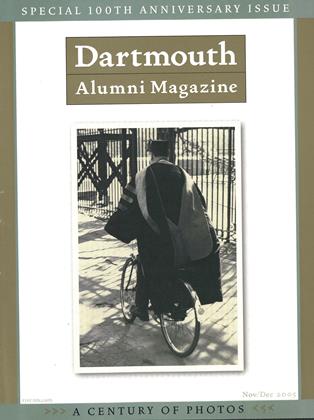FIONA HARRISON '85 hunts for black holes.
After spending the past 10 years developing a telescope capable of penetrating the gas and dust surrounding black holes, astrophysicist Harrison will learn in February whether NASA funds the Nuclear Spectroscopic Telescope Array (NuSTAR) mission, for which she is principal investigator. If given final approval, Harrison and her team will have $120 million and three years to "build everything and get it on the rocket." More penetrating and 1,000 times more sensitive than the telescopes that preceded it, NuSTAR will finally allow scientists to survey the universe for hidden black holes.
"We think black holes play an important role in nucleating galaxy formation," says Harrison, an associate professor of physics and astronomy at the California Institute of Technology. "By getting a good picture of how many are out there, we're trying to understand the process by which this happened."
Harrison didn't always have her eyes trained on the skies. As an undergraduate she played violin in the Dartmouth Symphony Orchestra and planned to study engineering or premed. She changed her mind after being bowled over by professor Bruce Pipes in freshman physics. Harrison then discovered a passion for research thanks to physics and astronomy professor Walter "Jay" Lawrence, her senior thesis advisor, who, 20 years later, says he is still "struck by how much she accomplished on a project that was challenging both conceptually and technically."
After graduating magna cum laude with high honors, Harrison headed to California-Berkeley, where she intended to pursue graduate studies in condensed matter physics. Instead, she found herself drawn to the instrumentation of astrophysics. "What really appealed to me is the idea that you could design and build some new kind of telescope to make observations no one has ever been able to make before." "By combining doing observations of the sky with developing new detectors and mirrors, you could chart new ground. I liked the discovery aspect of it."
sportlight
 View Full Issue
View Full Issue
More From This Issue
-
 Feature
FeatureForged by Flame
November | December 2005 By LEE MICHAELIDES -
 Cover Story
Cover StoryA Century of Photos
November | December 2005 -
 Feature
FeatureNotebook
November | December 2005 -
 Feature
FeatureAlumni News
November | December 2005 By Heather Brubaker '97, Heather Brubaker '97 -
 OUTSIDE
OUTSIDEDog Day Afternoons
November | December 2005 By LISA DENSMORE ’83 -
 PERSONAL HISTORY
PERSONAL HISTORYPaying the Price
November | December 2005 By JEFF DUDYCHA ’93
Bonnie Barber
-
 Article
ArticleClass of 1967
Jan/Feb 2007 By Bonnie Barber -
 Article
ArticleNewsmakers
Nov/Dec 2007 By BONNIE BARBER -
 Article
ArticleBench Watcher
July/August 2008 By Bonnie Barber -
 Article
ArticleNewsmaker
Jan/Feb 2009 By BONNIE BARBER -
 Article
ArticleNewsmakers
Nov/Dec 2009 By BONNIE BARBER -
 Article
ArticleNewsmakers
Mar/Apr 2012 By BONNIE BARBER







